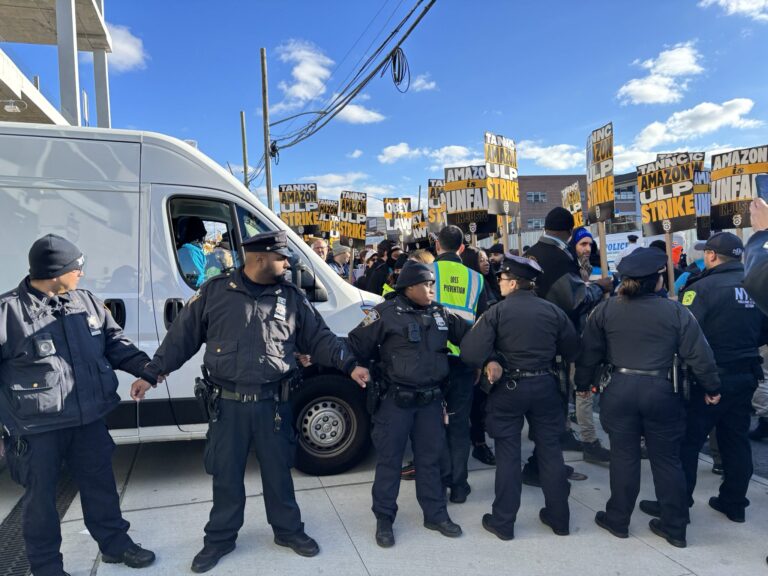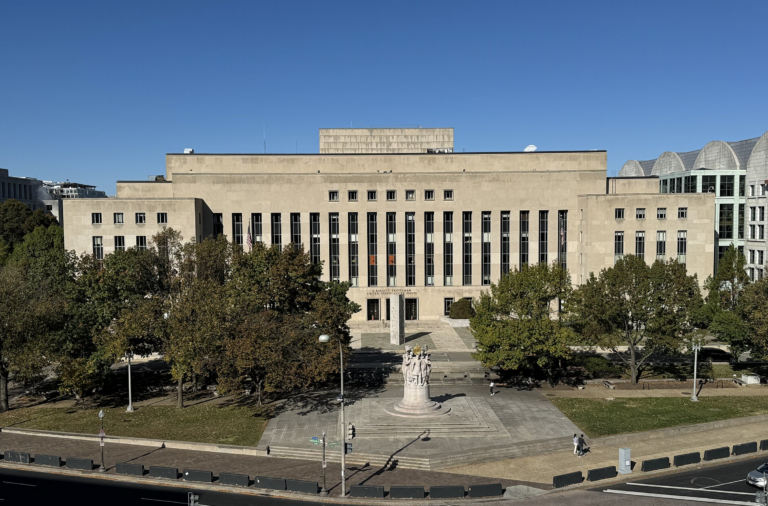Jobs don’t fall prey to higher minimum wages, according to researchers at U.C. Berkeley. Completing the first comprehensive empirical study of its kind, Sylvia Allegretto, Anna Godoey, Carl Nadler, and Michael Reich analyzed the impact of incremental wage increases in six cities – Chicago, D.C., Oakland, San Francisco, San Jose, and Seattle. The researchers intend their data “[t]o better inform public discussion as states and localities consider new wage standards.” They found no negative employment effects, and, in the food services industry in particular, high statistically significant positive effects, including earning increases between 1.3% and 2.5% following a 10% wage increase. Critics of minimum wage initiatives have long portended job losses as an unintended consequence.
Minimum wages may soon be rising in Michigan, where yesterday the state legislature approved a $12 an hour minimum, the elimination of the lower tipped workers’ minimum, and new paid sick leave rules. But the legislation may not proceed as adopted – for the Republicans, opposing the measures, strategized to prevent the initiatives from heading directly to ballot voters in November, and therefore kept open a chance to amend them heavily. Those campaigning for the higher minimum wage (up from the current $9.25 an hour and $3.52 an hour for tipped workers) had been lobbying lawmakers to let the voters take over. Meanwhile, in New Jersey, Governor Phil Murphy (D) has stressed that a new $15 an hour minimum is a top priority. Democrats currently control the state legislature.
Responding to Sen. Sanders’ Stop BEZOS “corporate welfare” tax bill announced Wednesday, some commentators are deploying a version of the job-loss-from-job-betterment argument, suggesting that Sanders’ efforts to incentivize better working treatment of low-wage and marginalized workers will instead dispel them from the workforce altogether. The Washington Post’s Catherine Rampill, who advocates for a significantly higher tax rate on the uber-wealthy like Jeff Bezos, warns that it’s “a given” that the “sloppily designed” BEZOS plan “would discourage firms from hiring low-skilled workers” as well as those workers “suspected of drawing benefits.” Thus, families with children, especially, would be at risk, both because a worker’s bigger household may qualify her for more benefits, and because some benefits, like subsidized school lunches, are available only to children.
The Center on Budget and Policy Priorities has also responded critically, cataloguing the bill’s potential problems. Chief among them, besides administrability, is that the bill could inspire a new motivation for the corporate constituency to lobby against social and benefits programs. Jared Bernstein, Joe Biden’s former chief economic advisor, foresees a “backfire” because the bill would unravel already tenuous social support for benefits. Not only would the bill further stigmatize the receipt of benefits, but it would also “provide fodder” for the “hard right[‘s]” movement to curtail benefits.
At least one police association appreciates Nike’s endorsement of Colin Kaepernick’s message. Kaepernick currently is pursuing a grievance against the NFL, claiming that teams did not sign him after he started to kneel during pre-game national anthem ceremonies in protest of police violence against African Americans. After Nike debuted an ad campaign valorizing the former 49ers quarterback, the National Association of Police Organizations requested all officers boycott Nike. But the St. Louis Ethical Society of Police reject the boycott and have declared that the NAPO “is not inclusive of the views of all law enforcement and in particular the views of the many minority officers who too have placed their lives on the line to defend the Constitutional Rights of everyone.” Through an open letter to Nike, the ESOP members “want it to be known” that they support the protest against police brutality.” Thursday night was opening night for the NFL, after a politically fraught 2017 season.
A Washington company operating two Little Caesar’s franchise locations has been hit with a $45,000 fine for labor violations, including use of child labor. The state Department of Labor and Industries claims that managers at the locations required youth employees to work during school hours and past 10 p.m. and to use prohibited equipment. Managers also allegedly denied young workers legally mandated rest breaks.
In New York City, the state Department of Consumer Affairs has been pursuing allegations that 42 home care agencies pervasively violate labor laws and regulations. The investigation has been comprehensive, probing into conditions that affect more than 50,000 workers, and tracking overtime pay as well as the extent to which employers are complying with the requirements of the state’s 2014 Paid and Sick Leave Law. According to Home Health Care News, settlements and restitution payments are forthcoming.
The Guardian has published a photo essay portraying the after-school lives and long hours of U.S. teachers. One in five teachers who work full time also work a second job. Those featured speak of high standards of living, stagnant salaries, and the pure exhaustion of teaching well while working double.









Daily News & Commentary
Start your day with our roundup of the latest labor developments. See all
February 11
Hollywood begins negotiations for a new labor agreement with writers and actors; the EEOC launches an investigation into Nike’s DEI programs and potential discrimination against white workers; and Mayor Mamdani circulates a memo regarding the city’s Economic Development Corporation.
February 10
San Francisco teachers walk out; NLRB reverses course on SpaceX; NYC nurses secure tentative agreements.
February 9
FTC argues DEI is anticompetitive collusion, Supreme Court may decide scope of exception to forced arbitration, NJ pauses ABC test rule.
February 8
The Second Circuit rejects a constitutional challenge to the NLRB, pharmacy and lab technicians join a California healthcare strike, and the EEOC defends a single better-paid worker standard in Equal Pay Act suits.
February 6
The California Supreme Court rules on an arbitration agreement, Trump administration announces new rule on civil service protections, and states modify affirmative action requirements
February 5
Minnesota schools and teachers sue to limit ICE presence near schools; labor leaders call on Newsom to protect workers from AI; UAW and Volkswagen reach a tentative agreement.